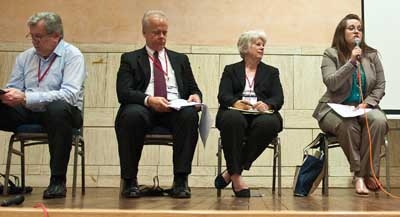Imprisonment, death, police raids not uncommon, IRLA panel discloses (Posted April 26, 2012)
BY MARK A. KELLNER, News Editor, Adventist Review, reporting from Punta Cana, Dominican Republic

It’s one thing to lose a job because of one’s religious beliefs. It’s quite another to be deprived of your freedom — or even your life.
Those are perhaps the most extreme challenges facing believers of many different faiths around the world today, and the situation can sometimes change without warning or even explanation, attendees at the Seventh World Congress of the International Religious Liberty Association heard on April 25, 2012.
Tiffany Barrans, international legal director for the American Center for Law and Justice (ACLJ) in Washington, D.C., recalled the torture and murder of Pakistani Christian businessman Rasheed Masih on March 9, 2010. Four Muslim competitors lured Masih to a rural farmhouse, ostensibly to discuss the potato business. Instead, they tried to force Masih to convert to Islam, and, it was alleged, beat him to death when Masih refused.
ACLJ’s European affiliate got involved and, working with attorneys in Pakistan, helped secure convictions of three of the alleged killers, each of whom received a life sentence.
The group is also very active on behalf of Iranian Christian Pastor Yousef Nadarkhani, arrested in 2009 on charges of “apostasy” from Islam, a faith Nadarkhani never practiced. He was sentenced to death in 2010, but massive international pressure has delayed the execution so far.
Barrans said of the ACLJ’s work, “Our attempt is to use the judicial system … and create a precedent, so people know they cannot kill, cannot beat and cannot hurt the religious minority with impunity,” she said.
In both Russia and Kazakstan, the roughly 60-year-old Church of Scientology is facing persecution and discrimination, said the Rev. Susan L. Taylor, president of the Founding Church of Scientology in Washington, D.C.
“Last December, police entered our church in Moscow in full force, burst into homes of staff members, and also brought a man from a TV station to film the raid,” Taylor reported. “The idea is to close down various churches of Scientology,” she added.
“In Kazakstan, we’re also experiencing persecution. Members have had to go underground,” Taylor noted. “In Almaty, the Ahmadi Muslims were shut down all over Kazakstan, and a local news item asked, ‘Is the Methodist church next?'”
Scientologists, Taylor explained, “have a policy in our church that we abide by the rules of the land. Working in that framework, we fight for our rights, we fight to exist.”
Attorney Kevin Kimball, area representative for the Church of Jesus Christ of Latter-day Saints (LDS) in Santo Domingo, capital of the
Dominican Republic, presented his personal views on the subject, saying he was “a longtime student of religious liberty” issues.
“We protect and reverence the right of liberty, the privilege of worshipping almighty God,” Kimball noted after quoting statements from several LDS leaders including founder Joseph Smith, Jr. Societies, he said, “need to respect other’s rights to practice their own religions.”
Such respect is growing in the Dominican Republic, Kimball said. In 2011, the national government enacted a law granting civil (legal) recognition to marriages performed by churches other than the Roman Catholic Church. He said this was an important step for Dominican churches and their members.
Now, evangelical, Seventh-day Adventist, LDS and other leaders are meeting informally to advance other laws aimed at gaining rights and privileges in Dominican society, he noted.
“It’s our hope that we will continue to build on the momentum we havehere, during a period of time when our host country affords a measure of religious freedom,” Kimball said. The goal, he added, “is not to diminish rights the Catholic Church has, but to extend those rights to other religions.”
For Vladimir Ryahovsky of the Slavic Center for Law & Justice (SCLJ) in Moscow, the challenges are basic: “I represent a country where the insitution of religious freedom is still in the process of developing,” he said.
While there was much religious freedom after the end of the Soviet Unionin 1991, much freedom was later pulled back. The Salvation Army was under fire from Russian authorities because of the word “Army” in their name and the fact that the movement’s international leader carries the rank of “General.” Ryahovsky’s group helped in an eight-year legal battle to gain recognition for The Salvation Army.
The SCLJ focuses much of its activity on educating lawyers, judges and government officials on the details of religious freedom: “We organize training seminars for religious organizations as well as for governmental officials. [University] chairs of church/state relations have been established; and we publish an academic journal on ‘Religion & Law’ to which many people subscribe,” Ryahovsky said.
